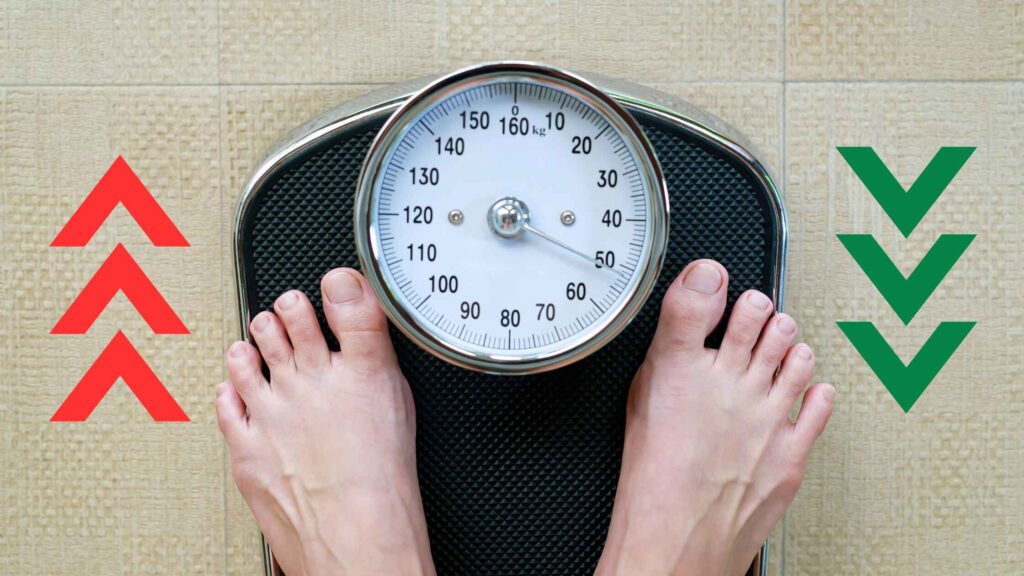Which is tougher: weight loss or weight gain?
People toss around “losing weight” and “gaining weight” like two sides of the same coin — but are they really equally hard? Short answer: it depends. Long answer: both can be tough for different reasons. Below I unpack physiology, psychology, environment, and practical strategies so you understand why one may feel harder than the other — and how to make either process simpler, kinder, and more sustainable.
The biological battleground
At the core, weight change is about energy balance: calories in versus calories out. But biology doesn’t make this simple. When you lose weight, your body responds with hormonal and metabolic adaptations that resist further loss. Leptin drops, hunger hormones rise, and resting metabolic rate can fall. Those changes are survival mechanisms (your body trying to avoid perceived starvation) and they make sustained weight loss challenging.
Gaining weight — especially lean muscle — faces its own biological hurdles. Building muscle requires consistent progressive resistance training, enough calories, and sufficient protein. Some people have fast metabolisms or naturally low appetite which makes eating enough to gain difficult. Genetics, thyroid function, and underlying medical conditions can sway both directions.
Psychological differences
Weight loss is often framed as restriction. Food culture, constant dieting, and “quick fix” messages fuel cravings, shame, and cycling between hope and failure. That psychological roller coaster can make sticking to a plan exhausting.
Weight gain, particularly for those trying to add muscle or reach a healthy BMI, requires discipline of a different kind: eating more than you naturally want to, planning frequent meals, and fighting social norms that praise small appetites. For many, the mental barrier is simply tolerating the discomfort of consistent, sustained eating when appetite is low.
Environmental and social factors
Our environment favors weight gain. Cheap, hyper-palatable, calorie-dense foods are everywhere; sedentary jobs and screens reduce activity. That makes losing weight an uphill battle for many.
On the flip side, social cues can work against someone trying to gain. Comments like “you’re fine” or “don’t eat so much” can undermine efforts. Plus, gyms and fitness cultures often assume “losing fat” is the default goal; those wanting to gain muscle may get less tailored support.
Practical difficulty: calorie math in real life
Losing weight requires a sustainable calorie deficit. Small daily deficits add up, but they also require constant awareness — tracking, portion control, meal planning. Hunger and social eating make consistency hard.
Gaining weight often requires a modest calorie surplus — but for people with small appetites, reaching that surplus is tedious. Liquid calories, nutrient-dense snacks, and timed protein intake help, but it still demands planning.
Time and progress
Muscle gain is slower than fat loss in terms of visible change. New lifters may see rapid improvements at first, but building significant lean mass takes months to years. Weight loss, especially initial water and glycogen loss, can look faster early on — but keeping it off is the hard part. So timelines and patience differ: perceived quick wins in loss can be misleading; real gains (lean tissue) take longer.
Which is tougher — the short verdict
There’s no universal answer. For many people in obesogenic environments, losing weight and keeping it off is harder because biology, food environment, and social cues push the other way. For naturally slim people, or those with high metabolisms, gaining weight (especially healthy muscle mass) can be harder. Personal history, hormones, medical conditions, and lifestyle determine which path is steeper.
Smart, humane strategies
If you want to lose weight:
-
Aim for a moderate, sustainable calorie deficit (not extreme).
-
Prioritize protein and resistance training to preserve muscle.
-
Build habits, not punishments: routine meals, sleep, stress management.
-
Focus on small, consistent changes you can maintain.
If you want to gain weight:
-
Target a small caloric surplus (250–500 kcal/day) and track progress.
-
Prioritize resistance training and progressive overload.
-
Increase meal frequency; use smoothies and nuts for extra calories.
-
Emphasize protein and recovery — food + sleep = growth.
Final thought
Both goals require patience, structure, and compassion. Labeling one “easier” misses the nuance: the real challenge is aligning your environment, habits, and mindset with the goal. Pick approaches that fit your life, be realistic about timelines, and treat your body kindly along the way. Whether you’re cutting or bulking, consistency beats intensity — and sustainable small wins beat dramatic short-term fixes every time.



